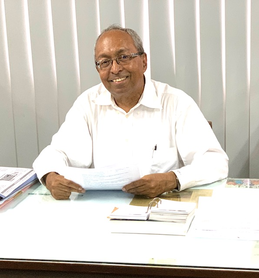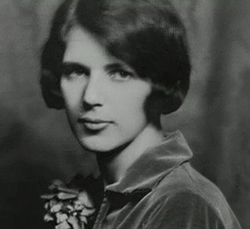An Interview With Barack Obama’s Speechwriter
Opinion editor Matt Dattolo talks to David Litt about his time writing for the president.
November 8, 2018
On October 31, I had the opportunity to meet David Litt, a speechwriter of former president Barack Obama, at Norwalk Community College’s NCC Talks event. In a seven minute interview, I asked him questions concerning his career and his experiences working for the Obama administration.
Matthew Dattolo: So what was it like writing speeches for President Obama?
David Litt: So a lot of speechwriters never get the chance to write for someone who is an amazing writer themselves. I absolutely got the chance. So President Obama wrote a really, really fantastic book before he was ever a politician. He thinks like a writer, and that’s just one of the many reasons why I had one of the best speechwriting jobs anyone has ever had in American history. Just to illustrate that, if he ever made handwritten edits to a speech or wrote something himself, that would always be a part of the speech where family and friends would say, like, “Did you write that?,” and I would be like, “Well I worked on the speech.” You know, kind of dodge the question a little.
Dattolo: So did you ever directly work with him on speech drafts?
Litt: Yeah of course. So, you know President Obama spoke, I think, on average more than once per day as president, which is a lot. So it’s not like he was sitting down and working on every single draft from scratch. But sometimes for big speeches he would get involved very early on at the beginning. I wrote a lot of the jokes, and for jokes we would often go through them, you know, three or four times in the Oval Office to make sure we got them exactly right because if you get a joke just a little bit off, something goes from funny to not at all funny.
Dattolo: Right. So what would be an example of the type of contribution you could make to a speech?
Litt: So a lot of what I thought of my job as writing a speech that was, let’s say, almost as good as the speech President Obama would’ve written if he had time to write it. He didn’t, because he was busy being the president. So, that could be in a serious speech, and, for example, helping to talk about a new policy, an initiative we were rolling out, trying to say something in a memorable way so that people who do not spend all their time in Washington thinking about policy issues understand what we’re trying to do. Or it could be, you know, bringing Luther the Anger – Obama’s anger translator, the character from the Comedy Central show – into performing with President Obama at the White House live correspondents’ dinner, you know, having a little fun with that.
Dattolo: So, how did you feel knowing that the entire world heard some of your work on a regular basis?
Litt: It was really strange because you can’t think about that too much or your head will kind of explode. But on the other hand, it was also amazing. You know, I kind of got very spoiled because at like, 25 or 26, I got used to seeing words that I wrote in the newspaper like the New York Times pretty often. And obviously they weren’t because I wrote them, it was because President Obama said them, but it was still, you know, now that doesn’t happen to me and I’m like, “Oh, why is that? Oh yeah, it’s because I’m not writing for President Obama.” So it’s a little different. But it was… it gives you a sense of how much those words, the President’s words can matter. You know, because I would also say, a couple of times when I screwed up at my job, the consequences were really high, and that’s not because I was super important, it was just because anybody working at the White House has a job that, you know, if you make a mistake, it can make a big difference.
Dattolo: What was your most memorable speech that you had written for the administration?
Litt: I mean I think I got to write a lot of speeches that I will remember in many different ways. One of the speeches that I was most proud of, that was serious, was writing a speech that President Obama gave at the NAACP convention in 2015 about criminal justice reform. And that was the first time we had really tied all of the different threads of criminal justice reform together in a single speech and it felt like the right place and the right time, and it really came together and I felt like I had been able to contribute something. And then on the joke side, I mentioned this before, but working with Keegan-Michael Key, he’s one of my favorite comedians, and having Luther, Obama’s anger translator, come on stage with Obama and surprise 2,000 people at the White House correspondents’ dinner and then like 35 million people who watched that on Facebook the next day. That was really fun. And we worked a serious message about climate change into the jokes, and so that combination of being funny but also having a point was something that I think I was able to do at times, and I’m proud of.
Dattolo: To what do you attribute your success in your career?
Litt: The thing I’ve sort of come to think about is that nobody is really the best at what they do, but lots of people are tied for first. So you want to be tied for first, you want to enough talent and ability that you’re one of many people who could do an exciting job, and then the rest of that is mostly luck. Like there are speechwriters who are every bit as talented as I am, and didn’t get the chance to write for President Obama, and that’s a matter of luck. The other thing that I found was true, all of the speechwriters, the Obama team, and most people with really exciting careers that I know is, at some point someone had extra work that needed to be done, and they said, “Oh, I’ll stay late and I’ll try it,” or, “I’ll work on it over the weekend.” And that willingness to not just work hard, but to do the work that no one else wants to do, or, you know, when that opportunity comes, drop everything and seize it.
Dattolo: Going that extra mile.
Litt: Yeah, that makes a big difference, and that’s a common thread in everyone’s story, no matter what business they’re in, that I know, where they have career that I think are really cool.
Dattolo: One last question: do you think a good speechwriter could change the balance of power or have any influence?
Litt: I don’t think a good speech can change everything. But I do think that… the way I describe it in my book is that a good speechwriter is almost like a personal trainer. A personal trainer is not going to turn you into somebody you are not. You know, I’m 5’5” on a good day, a personal day isn’t gonna make me 6’3” but they can help you present the best version of yourself, the most attractive version of yourself to the public and so they can help you make a case and so if you believe in the right things and are working, like whatever you are doing for the right reason, a speechwriter can help you make that clear to the people, who, ultimately are going to hold you accountable, and that matters.
Dattolo: Thank you so much for your time.
Litt: Yeah, my pleasure.













